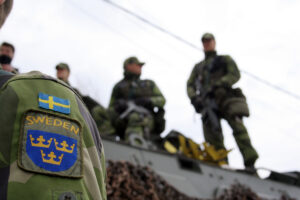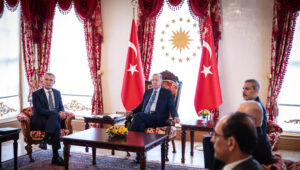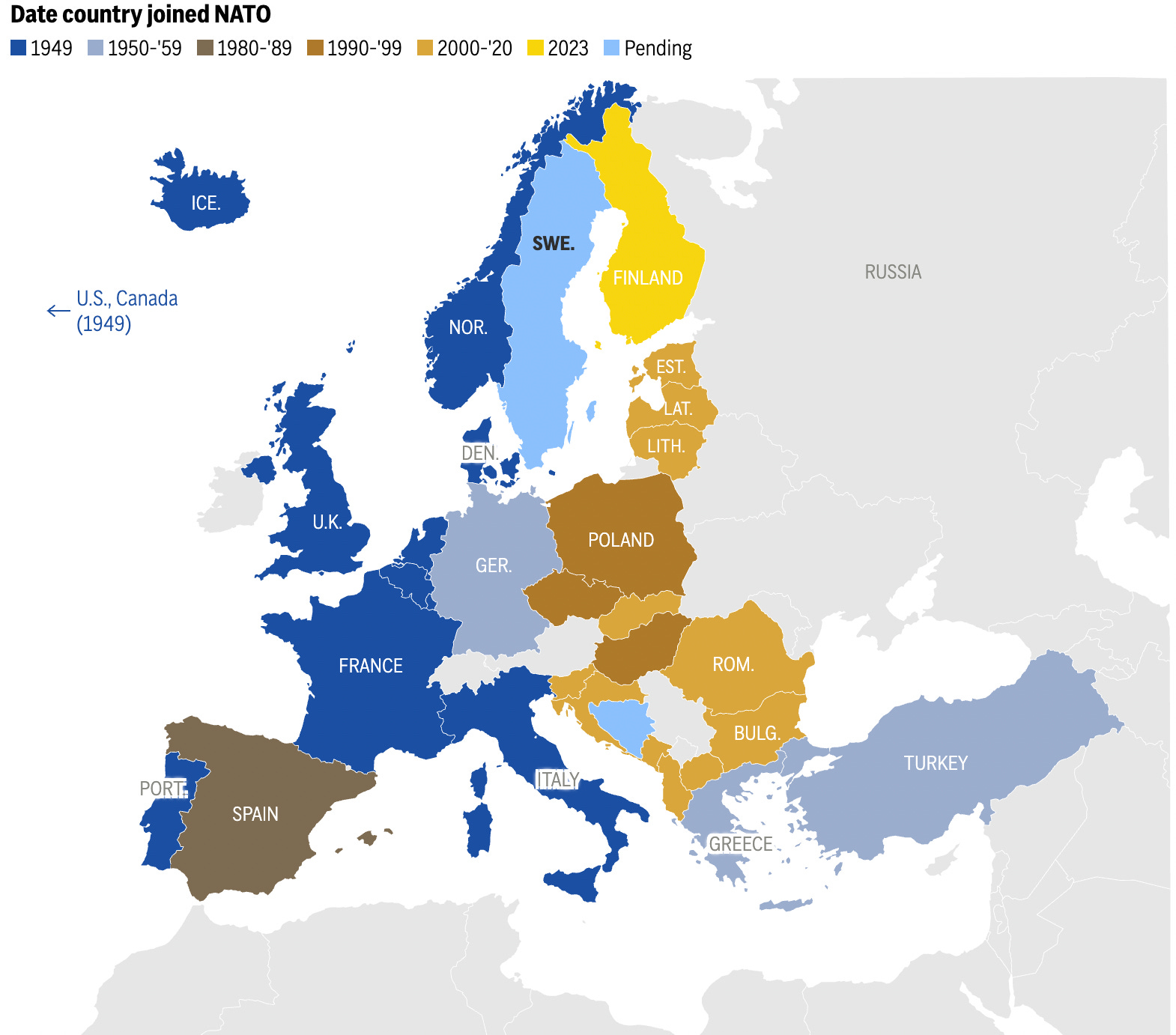In the quiet of a European winter, the geopolitical landscape has been reshaped by decisions echoing through the halls of power from Stockholm to Ankara, and now Budapest. The unfolding narrative of Sweden’s journey to NATO membership, a saga marked by strategic shifts and diplomatic negotiations, speaks to the complexities of modern international relations and the enduring quest for security in an increasingly multipolar world.
Sweden, long known for its commitment to neutrality, finds itself at a historic crossroads. The Swedish Civil Defence Minister, Carl-Oskar Bohlin, has issued a stark warning, one that resonates with an urgency born from the ongoing conflict in Ukraine. The call for modernisation of Sweden’s civil defence systems, a reflection of heightened tensions across Europe, is not merely about upgrading technology but a profound shift in national mindset. As Sweden prepares to join NATO, its leaders are acutely aware of the gravity of this decision, influenced significantly by the ripple effects of Ukraine’s struggle against Russian aggression.
Micael Byden, the Commander-in-Chief of the Swedish Armed Forces, echoes this sentiment, urging his compatriots to brace for potential conflict. His words, underscored by the urgency of NATO membership, signal a new era for a nation that has prided itself on a policy of non-alignment since World War II. The ramifications of this shift are profound, not just for Sweden but for the broader tapestry of European security.
This sense of urgency is not confined to Sweden. The Dutch Army Chief, Lieutenant General Martin Wijnen, has pointed to Russia’s growing military prowess as a threat that extends beyond Sweden’s borders. This shared concern underscores the interconnected nature of security in the 21st century, where national defence strategies are inextricably linked with regional stability.

Sweden’s response to these challenges has been multi-faceted. A notable step was the 2018 distribution of a ‘be prepared for war’ leaflet to 4.8 million households. This initiative, reminiscent of wartime efforts, was a stark reminder of the changing times. The leaflet, titled “Om krisen eller kriget kommer” (If crisis or war comes), offered practical advice on emergency preparedness, encompassing modern challenges such as cyber and terror threats.
The ‘total defence’ strategy, of which the leaflet was a part, reflects a deep-seated commitment to preparedness, a philosophy that has guided Swedish policy since World War II. This strategy involves not just the military but the entire populace, underlining the belief that national security is a collective responsibility.
On the military front, Sweden has reversed its stance on defence spending cuts, embarking on its largest military exercises in decades. The reinstatement of conscription and collaboration with Denmark on cyber threats and disinformation campaigns against Russian aggression are clear indicators of a nation gearing up for a changed security landscape.
As Sweden inches closer to its historic NATO membership, its government stands firm on the necessity of preparation and resilience. The message is clear: in the face of external threats, these are the keys to maintaining national security and independence.
This narrative took a significant turn on January 29, 2024, when Turkey, after a prolonged period of diplomatic engagement, approved Sweden’s NATO membership. This development, marked by a vote of 287 to 55 in the Turkish Parliament, signified a major shift in the geopolitical equation. It was a culmination of complex negotiations, reflecting a tapestry of defence, political, and economic considerations that define international alliances.
The ratification by Turkey was not just a procedural step; it was a strategic move. President Recep Tayyip Erdogan’s initial reluctance, tied to Turkey’s aspirations to acquire fighter jets from the U.S., underscored the multifaceted nature of international diplomacy. Sweden’s amendments to its anti-terrorism laws and actions against the PKK were pivotal in addressing Turkey’s concerns, demonstrating the intricate balancing act involved in such high-stakes negotiations.
The U.S. response to Turkey’s decision, articulated by National Security Advisor Jake Sullivan, was one of approval. Sweden’s inclusion in NATO was seen as a strengthening of the alliance, a sentiment echoed by many within NATO, particularly in the context of Russia’s invasion of Ukraine.
The geopolitical choreography continued with Finland’s earlier accession to NATO, setting a precedent for Sweden. However, Hungary’s delayed approval, fueled by allegations of Swedish dishonesty about Hungary’s democratic condition, added another layer of complexity to the narrative.

Behind the scenes, NATO chief Jens Stoltenberg facilitated crucial negotiations, highlighting the intricate interplay of factors that shape international alliances. The eventual breakthrough in Turkey’s stance and the subsequent progression of the F-16 fighter jets transfer from the U.S. to Turkey exemplified the reciprocal nature of these geopolitical exchanges.
Turkey’s broader agenda, encompassing its relations with the EU and the U.S., played a significant role in this process. The joint statement post-negotiations, which highlighted commitments on counterterrorism and mutual support on key issues, was indicative of Turkey’s strategic approach to leveraging the NATO membership process for wider diplomatic gains.
Erdogan’s adept navigation between linking Sweden’s NATO bid with Turkey’s aspirations within the EU illustrated a complex and nuanced diplomatic strategy. His ability to extract concessions on key issues like the EU-Turkey Customs Union and visa liberalisation underscored his skill as a statesman.
The journey for Sweden’s full integration into NATO involves additional procedural steps, including ratification by other member states. The nuanced interplay of national interests, defence agreements, and international diplomacy that underpinned Turkey’s decision will continue to shape the future of NATO and its new members.
Sweden’s path to NATO membership took a significant step forward on February 26, 2024, when Hungary’s parliament approved Sweden’s accession. This decision, coming nearly two years after Sweden applied to join the alliance, marked the end of a diplomatic saga fraught with delays and negotiations.
Swedish Prime Minister Ulf Kristersson, speaking after the vote in Budapest, hailed the decision as “a historic day”. His words captured the essence of a momentous shift for Sweden, a nation leaving behind two centuries of neutrality and military non-alignment. Kristersson’s reference to NATO membership as a “homecoming” to a community of democracies working for peace and freedom was a powerful testament to the changing tides of international relations.
The significance of this moment extended beyond Sweden to the entire Nordic region. For the first time in 500 years, the Nordics would share a common defence through NATO, a landmark development in regional security.

Jens Stoltenberg, the outgoing NATO secretary general, echoed this sentiment, asserting that Sweden’s inclusion would make the alliance stronger and safer. The vote in Hungary followed a meeting between Kristersson and his Hungarian counterpart, Viktor Orbán, which saw the two leaders put aside their differences in a display of unity and cooperation.
This new phase of cooperation between Hungary and Sweden, marked by the signing of a military agreement and the sale of Swedish Gripen planes to Hungary, signified a thawing of relations and a mutual commitment to collective security.
Turkey’s earlier approval of Sweden’s NATO membership, coupled with Hungary’s endorsement, was indicative of the complex web of geopolitical interests and diplomatic negotiations that define our interconnected world. Orbán’s eventual support, despite his initial reservations and close ties with Russia, highlighted the intricate dynamics of international alliances.
Sweden’s NATO membership, now a reality, transforms the Baltic Sea into a region almost entirely encompassed by NATO members. This development, aptly nicknamed a “NATO sea”, signifies a strategic shift in regional security dynamics.
Kristersson’s leadership, supported by his centre-right coalition and the far-right Sweden Democrats, has navigated the NATO issue with a mix of respect for differences and a commitment to joint cooperation. His acknowledgement of the joint achievement with former Prime Minister Magdalena Andersson, who initiated the NATO membership process, underscores a collective approach to national security.
As Sweden stands on the cusp of a new era, its journey to NATO membership is not just a story of shifting alliances and strategic decisions. It is a reflection of a world where national interests, regional stability, and global security are deeply interconnected, a world where the decisions of one nation can reverberate across continents, shaping the future in profound and enduring ways.

